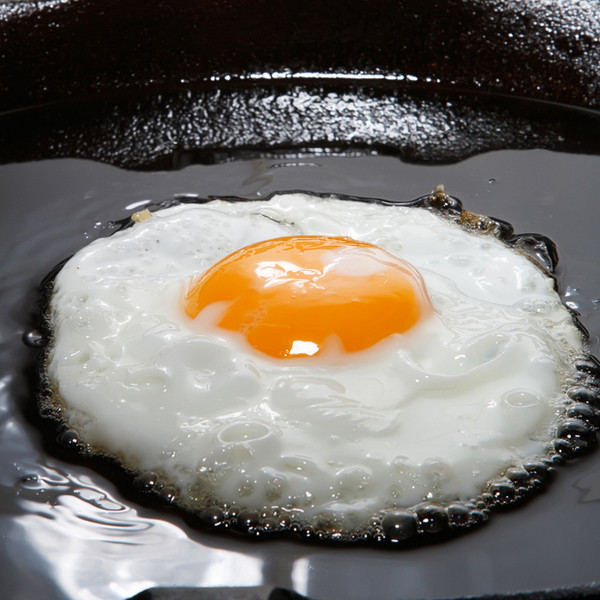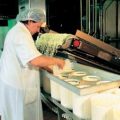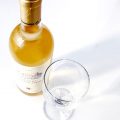Cast-iron frying pans
 Cooking in a frying panWhat are they good for:The low thermal conductivity of cast iron is especially suitable for products that require long cooking. You can cook in such a frying pan without frequent stirring. Ideal for . Pros: cast iron frying pans are the thickest. They are not afraid of scratches and high temperatures. Nothing sticks to them, and they retain heat for a long time. This is the most durable frying pan - fireproof, wear-resistant, suitable for all kitchen stoves and for use in the oven. The porous structure of cast iron, like a sponge, absorbs any fat, which creates a natural non-stick coating on its surface. Therefore, it is not recommended to wash a cast iron frying pan thoroughly. It should remain oily. Cons: these are not only the thickest, but also the heaviest frying pans. You cannot store cooked food in them, since cast iron rusts. For the same reason, cast iron frying pans require special care. They are not washed, but calcined over a fire, and then rinsed with cold water. Such cookware must be thoroughly dried after washing and greased with vegetable oil. Another disadvantage of cast iron is its fragility. Despite its massiveness, cast iron can crack from an impact. If you are not afraid of these requirements, then feel free to choose a cast iron frying pan. You will be able to pass it on as an inheritance along with your favorite family recipes. The main rule: your own burden is not heavy. Rust on a cast iron frying pan If you carefully fight fat, cleaning a cast iron frying pan with aggressive detergents, the cookware will very quickly become covered with reddish rust spots. You can get rid of them with vegetable oil: heat, grease with oil and heat again. To prevent rust from appearing again, each time you wash the frying pan, grease it with oil and wipe it with a paper napkin. And never store ready-made dishes in cast iron.
Cooking in a frying panWhat are they good for:The low thermal conductivity of cast iron is especially suitable for products that require long cooking. You can cook in such a frying pan without frequent stirring. Ideal for . Pros: cast iron frying pans are the thickest. They are not afraid of scratches and high temperatures. Nothing sticks to them, and they retain heat for a long time. This is the most durable frying pan - fireproof, wear-resistant, suitable for all kitchen stoves and for use in the oven. The porous structure of cast iron, like a sponge, absorbs any fat, which creates a natural non-stick coating on its surface. Therefore, it is not recommended to wash a cast iron frying pan thoroughly. It should remain oily. Cons: these are not only the thickest, but also the heaviest frying pans. You cannot store cooked food in them, since cast iron rusts. For the same reason, cast iron frying pans require special care. They are not washed, but calcined over a fire, and then rinsed with cold water. Such cookware must be thoroughly dried after washing and greased with vegetable oil. Another disadvantage of cast iron is its fragility. Despite its massiveness, cast iron can crack from an impact. If you are not afraid of these requirements, then feel free to choose a cast iron frying pan. You will be able to pass it on as an inheritance along with your favorite family recipes. The main rule: your own burden is not heavy. Rust on a cast iron frying pan If you carefully fight fat, cleaning a cast iron frying pan with aggressive detergents, the cookware will very quickly become covered with reddish rust spots. You can get rid of them with vegetable oil: heat, grease with oil and heat again. To prevent rust from appearing again, each time you wash the frying pan, grease it with oil and wipe it with a paper napkin. And never store ready-made dishes in cast iron.
- How to choose the best utensils for the kitchen: tips









